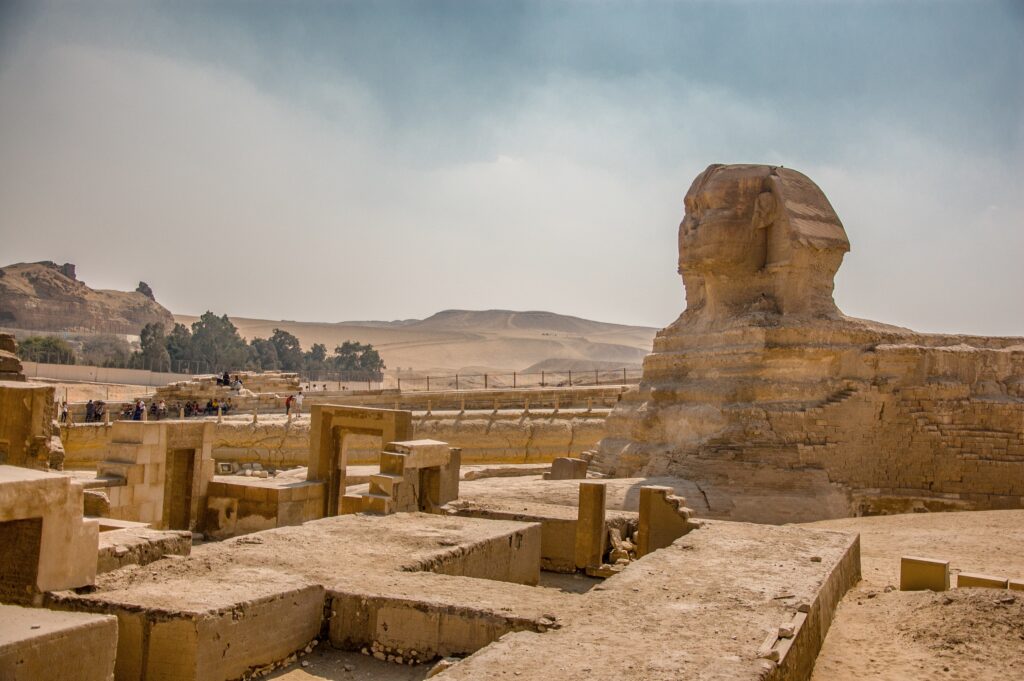Are you interested in purchasing real estate in Egypt? If so, it’s important to understand the process and the regulations that apply to foreigners. In this article, we will provide you with a comprehensive guide to buying real estate in Egypt. We will cover topics such as how to purchase property as a foreigner, the fees involved, and the different methods of ownership. Buying property in Egypt can be a complex process, but with the right knowledge and legal guidance, you can navigate through it successfully. So let’s get started and explore the steps involved in acquiring a property in Egypt.
How to purchase property in Egypt?
Foreign ownership regulations
As a foreigner, you have the opportunity to purchase property in Egypt under Law No 230 of 1996. However, there are certain restrictions to keep in mind. Foreigners are limited to buying a maximum of two pieces of real estate, with a total area not exceeding 4,000 square meters. Additionally, the purpose of the property must be for a family member to reside in it. The approval of the Council of Ministers is required for the purchase, which typically takes around two months.
Approval process
To purchase property in Egypt as a foreigner, you must obtain approval from the Council of Ministers. This process can take some time, so it’s important to be patient and allow for the necessary paperwork and reviews to be completed. Working with a reliable and experienced real estate agent or lawyer can streamline the approval process and ensure that all required documentation is submitted accurately.
Property size restrictions
Foreigners are limited to buying properties in Egypt with a maximum total area of 4,000 square meters. It’s essential to consider this restriction when searching for property and ensure that the size aligns with your needs and preferences. Keep in mind that the purpose of the property must be for a family member to reside in it, as stated under the regulations.
Bringing in foreign exchange
According to the law, the purchase sum for the property must be brought into Egypt in foreign exchange. Although this provision is not strictly enforced, it’s important to consider this requirement and consult with a real estate lawyer or agent to understand how to fulfill this aspect of the purchasing process. They can provide guidance on the best method for bringing in foreign exchange and ensuring compliance with the regulations.
Rental requirements
If you choose to register your property in Egypt, it cannot be sold or rented out for a period of five years. After this period, the property must be rented out furnished, which can have tax disadvantages. It’s important to be aware of these rental requirements and understand the potential implications on your investment. Consulting with a tax professional or lawyer can provide valuable insight into the tax implications of renting out your property in Egypt.
Registering property in Egypt
Sale and rental restrictions
If you decide to register your property in Egypt, there are certain restrictions to be aware of. The property cannot be sold or rented out for a period of five years. This restriction is in place to protect the Egyptian real estate market and ensure stability. It’s important to consider these limitations when making your decision on how to proceed with property registration.
Process and time frame
The process of registering a property in Egypt can be complex and time-consuming. It’s crucial to work with a real estate lawyer or agent who is familiar with the local regulations and can guide you through the process. They can handle the necessary paperwork, submissions, and interactions with the relevant authorities, ensuring that the registration process is completed efficiently and accurately.
Tax disadvantages
Registering your property in Egypt can have tax disadvantages, particularly when it comes to renting out the property. After the initial five-year period, the property must be rented out furnished, which can result in higher tax obligations. It’s important to consider these tax implications and consult with a tax professional to understand the financial implications of registering your property in Egypt.

Different rules for Sharm El Sheikh
Freehold rights vs. leases
In Sharm El Sheikh, the rules for property ownership are different compared to the rest of Egypt. An administrative decree issued in 2005 abolished the 1996 law for property in Sharm El Sheikh. As a result, foreign purchasers in Sharm El Sheikh cannot acquire freehold rights and are limited to 99-year leases.
Procedure for foreign purchasers
Foreign purchasers in Sharm El Sheikh must follow a specific procedure called a “signature validity court verdict.” This method allows them to buy multiple properties, rent them out, and sell them without the need for additional approvals. The process involves obtaining a “negative” certificate for the property, receiving a tax certificate from the authorities, and drafting a detailed sale/usufruct contract, among other steps.
Advantages and disadvantages of registration and the ‘signature validity court verdict’
Advantages of registration
Registering your property in Egypt offers full and maximum protection under the recognized method in Egyptian law. It provides legal ownership and ensures your rights as a property owner. This can bring peace of mind and security for your investment.
Disadvantages of registration
One major disadvantage of property registration is that you cannot resell your property within the first five years of ownership without written approval from the Prime Minister. This restriction can limit your flexibility and ability to make changes to your investment portfolio.
Advantages of the ‘signature validity court verdict’
The “signature validity court verdict” method offers practicality and flexibility for real estate transactions in Sharm El Sheikh and other areas of Egypt. It allows you to resell your property without needing additional approvals, providing you with more control over your investment decisions.
Disadvantages of the ‘signature validity court verdict’
While the “signature validity court verdict” method offers flexibility, it is considered a weaker form of protection compared to property registration. It’s important to weigh the advantages and disadvantages of both methods based on your specific investment goals and risk tolerance.

Importance of hiring a real estate lawyer
Complexity of property registration process
The property registration process in Egypt can be complex and requires a thorough understanding of local laws and regulations. Hiring a real estate lawyer who specializes in Egyptian property law can simplify the process and ensure that all necessary steps are completed accurately and efficiently.
Language requirements
Legal documents related to property in Egypt must be written in Arabic, as it is the only language recognized by the courts. Working with a real estate lawyer who is fluent in both Arabic and your native language can help bridge the language barrier and ensure clear communication throughout the process.
Cost of legal fees
While hiring a real estate lawyer in Egypt may involve additional costs, the expertise and guidance they provide can be invaluable. They can help you navigate the complexities of the property purchase process, ensure compliance with local laws, and protect your interests as a foreign investor.
Transaction costs when purchasing real estate
Registration fees
To complete the transfer of property ownership, a registration fee must be paid. Recently, Egypt has revised the maximum registration fee to EGP 2,000 (US$72), regardless of the purchase price of the property. This change has made registration less expensive than before.
Legal fees
Due to the complexity of the property registration process, it is advisable to hire a real estate lawyer to handle the legal aspects of the transaction. Legal fees typically amount to around 3% of the property value.
Real estate agent’s fees
Real estate agents in Egypt typically charge a fee of 2.75% to 3.30% of the property value, which is paid by the seller. This fee covers their services in facilitating the transaction and representing the seller throughout the process.
Transfer tax
The sale or transfer of immovable property in Egypt is subject to a transfer tax of 2.5% of the property value. This tax is typically paid by the seller.
Capital gains tax
Capital gains tax is imposed on the sale of land and buildings within Egyptian cities at a rate of 2.5% of the gross gains of the seller. This tax is also classified as a transaction cost as it affects the overall costs associated with buying and selling property in Egypt.

Landlord-friendly laws in Egypt
Overview of landlord rights and protections
Egyptian law provides certain rights and protections for landlords. However, it’s important to familiarize yourself with the specific regulations and requirements in order to effectively navigate the rental market. Understanding the landlord-friendly laws can help you make informed decisions and protect your investment.
Market analysis and trends in Egypt
Price changes and trends
Understanding the price changes and trends in the Egyptian real estate market is crucial when considering a property investment. Monitoring the market and analyzing historical and current data can help you make informed decisions and identify potential investment opportunities.
Rental yields
Rental yields, which measure the return on investment from rental income, are another important factor to consider when investing in Egyptian real estate. Analyzing rental yields can help you determine the profitability and potential return on your investment.
Cost of buying vs. renting
Comparing the cost of buying property to renting can help you evaluate the financial implications of each option. Understanding the cost dynamics and market conditions can guide your decision-making process and ensure that you make the most advantageous investment choice.
Price-to-rent ratio
The price-to-rent ratio is a measure used to assess the affordability of buying versus renting property. Calculating this ratio can provide insights into the market conditions and the potential financial benefits of either buying or renting in Egypt.
GDP per capita and growth
Evaluating the GDP (Gross Domestic Product) per capita and growth in Egypt is essential for understanding the overall economic conditions and the potential for real estate investment. Strong GDP growth and a healthy economy can contribute to a thriving property market.
Egypt as a real estate investment destination
Best locations for property investment in Egypt
Identifying the best locations for property investment in Egypt requires careful market analysis and research. Factors such as infrastructure development, tourism potential, and economic growth can influence the investment opportunities and potential returns.
Comparison to other regions in Europe and Asia
When considering real estate investment options, it’s essential to compare Egypt to other regions in Europe and Asia. Assessing factors such as market stability, regulatory environment, and potential returns can help you make informed decisions and identify the most suitable investment destinations.
Global Property Guide resources for Egypt
Data on rental yields, property prices, and taxes
To stay updated on rental yields, property prices, and taxes in Egypt, Global Property Guide offers valuable data and resources. Access to timely and accurate information can help you make informed decisions and stay ahead of market trends.
Quarterly reports on market trends
Global Property Guide provides quarterly reports on market trends in Egypt. These reports offer comprehensive insights into the Egyptian real estate market, including analysis of price changes, rental yields, and economic indicators.
Subscription options and contact information
To access the full range of resources and information from Global Property Guide, various subscription options are available. For more information and to get in touch with Global Property Guide, visit their website or contact their team directly.
By following these steps and considering the regulations, processes, and trends outlined in this article, you can navigate the process of purchasing property in Egypt with confidence. Remember to consult with legal and financial professionals to ensure compliance with local laws and make informed investment decisions.

